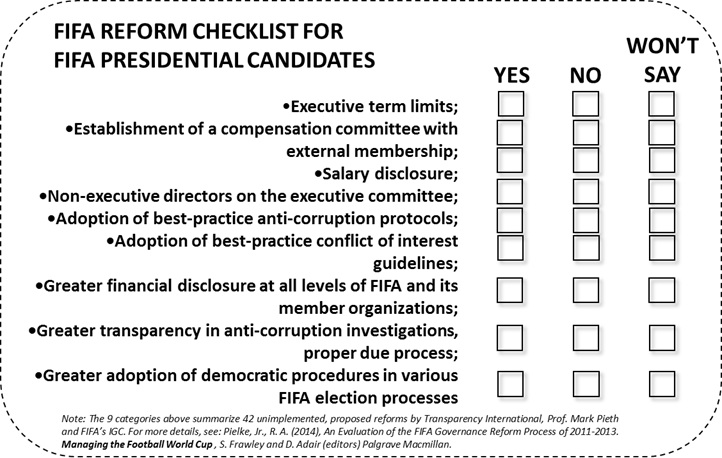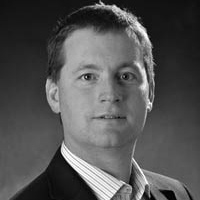3 August 2015
After flirting with the possibility of trying to stay on, it looks like FIFA President Sepp Blatter will indeed be standing down early next year. Blatter has announced that FIFA will hold an election to choose his successor on 26 February, 2016.
Everyone loves an electoral horse race, and FIFA’s will be no different, but in the process, we risk losing sight of what got FIFA into this mess in the first place: poor governance. What’s needed is not simply a new president, but a new president committed to true reform.
There are lots of big names who have thrown their hat into the ring, and others testing the waters. Michel Platini, the head of UEFA, has said that he will run, and garnered lots of early commitments of support. South Korean billionaire Chung Mong-joon and former Brazilian international Zico are also running. Prince Ali bin Hussein of Jordan, who recently lost to Blatter in last May’s FIFA election, is another possibility. So too is Tokyo Sexwale, the South African businessman and former politician, well known for spending years in prison alongside Nelson Mandela. Others will probably join in too.
Thus far, at least, none of these candidates or potential candidates have said anything about where they stand on reforming FIFA, which simply means bringing the organization into line with respect to basic standards of governance expected of businesses and international organizations in the 21st century.
To assist these candidates in sharing their positions on reform, I have created the simple checklist which you can see at the top of this post, and right. (Click to enlarge)
It summarizes the nine areas of needed reforms as identified by Transparency International, Professor Mark Pieth and FIFA’s own governance reform committee of 2011-2013.
Together, there were actually 59 specific reforms recommended, of which FIFA has yet to adopt 42 of them. That’s forty-two. Or 71% ….
(If you want specifics, they are here: Transparency International, Pieth, and FIFA’s IGC). I summarized the 42 into the nine categories (details here and full paper as PDF here).
It will be easy enough for wannabe FIFA presidents to simply complete this form to show where they stand on various reform issues. The election of a new FIFA president in the absence of meaningful reforms simply sets the stage for more governance failings in the future. One individual, no matter how decent and well meaning, cannot alone stem the tide of more than a century of culture and practices that have come to define the modern FIFA.
So journalists, activists and insiders, please clip this form and share it with your favorite FIFA presidential candidate. With some answers, we can make the horse race about a more than personalities and votes, we can also make it about the future of FIFA.
.
Roger Pielke Jr. is a professor of environmental studies at the University of Colorado, where he also directs its Center for Science and technology Policy Research. He studies, teaches and writes about science, innovation, politics and sports. He has written for The New York Times, The Guardian, FiveThirtyEight, and The Wall Street Journal among many other places. He is thrilled to join Sportingintelligence as a regular contributor. Follow Roger on Twitter: @RogerPielkeJR and on his blog
.











